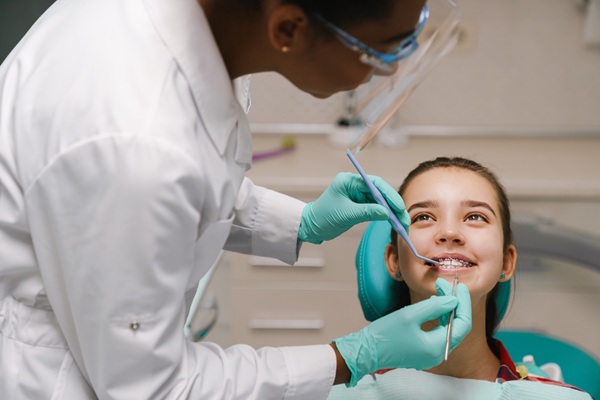Is a Dental Implant Harmful in Any Way to the Body?

One of the concerns many patients have when getting a dental implant is the possibility for complications. Dental implants have existed for over 50 years and have undergone extensive studies and improvements over time. While they are proven to be safe and effective, this does not mean that there are zero risks involved in the use of tooth implants. However, most of these complications involve the potential for allergic reactions to the materials involved.
Understanding dental implant materials
Metals are the preferred materials for dental implants because they have the ideal mechanical properties for the job, such as their weight-to-strength ratio and the fact that they perform well with biological materials. More than 95% of dental implant procedures use titanium alloys. Titanium dental implants are biocompatible and pose no risk to oral tissues.
Although titanium dental implants are popular, there are other options used in restorative dentistry. Many patients have reasonable concerns regarding the insertion of foreign materials into their body. The mouth is essentially the gateway to the body, and every part is interwoven. Most patients enjoy a lifetime with their dental implant without experiencing any harsh reactions.
For a small number of patients with allergies or sensitivities to metals, however, a titanium implant can have consequences. Titanium implants are alloys: They consist of different metals such as nickel, iron, lead, zinc and copper. Anyone who has suffered a harsh reaction to any of those metals in the past cannot get titanium dental implants.
Nickel allergies
According to the Centers for Disease Control and Prevention, 10% to 20% of people in the United States have nickel allergies. It is one of the most common allergies in the U.S., and many individuals do not discover the allergy until they suffer a reaction, usually from coils, paper clips, cell phones, metal braces, eyeglasses or even zippers. The symptoms usually start 12 to 48 hours after contact, and the patient may notice redness, bumps, itching, blisters, dry patches or a skin rash. The reaction may persist for up to a month, and in rare situations, can trigger respiratory problems such as asthma and nasal inflammation.
Titanium alloy reactions
Some researchers are concerned that titanium alloys can result in complications that may affect overall wellbeing, as well. The potential health risks of titanium dental implants being studied include the following:
- Bone loss
- Implant rejection
- Autoimmune disease triggers or aggravation
- Free radical damage
- Galvanic toxicity
It is important to note that these impacts have not been confirmed by scientific studies, however.
Considering alternative materials
Patients with metal allergies should consider other options for their dental implant. Zirconia implants, for example, are biocompatible and practically metal-free. These implants are just as comfortable and durable, and they remove the risk of corrosion associated with titanium implants. They are also non-conductors, meaning patients are not at the risk of electrical charges that may have a negative impact on the body’s natural processes. Due to the one-piece design, zirconia implants reduce the risk of bacteria growth and infection.
In conclusion
Dental implants are generally not harmful to the body. However, patients who are allergic to titanium can opt for an effective alternative like zirconia. Your dentist and oral surgeon can perform the necessary evaluation to ensure you are safe to receive dental implants.
Request an appointment here: https://www.bryancousindmd.com or call Cosmetic & Family Dentistry of the North Shore at (781) 443-8268 for an appointment in our Swampscott office.
Check out what others are saying about our dental services on Yelp: Dental Implant in Swampscott, MA.
Recent Posts
If you are dealing with significant dental trauma or tooth loss, dental implants are a permanent solution that can help restore your smile. The gaps created from missing teeth can also impact speaking and chewing abilities. Many patients enjoy the natural-looking and durable results that implants can offer over replacement options like a resin-retained bridge,…
A missing tooth can lead to many cosmetic and health complications. Dental implants are an effective method for treating tooth loss and restoring a person's smile. They can prevent other issues from developing, including: Speech and digestive problems Damage to surrounding teeth Improper alignment Tooth and jaw painThe results are typically permanent, and implants are…
Dental implants enable you to get as close as you can get to replacing your natural teeth roots, both in terms of function and health benefits. Dental implants require regular care like your natural teeth, which is the only way to ensure that your implant-supported teeth can last a lifetime. Read on to learn about…
No one should have to live with missing teeth, and if you are not comfortable wearing dentures, then dental implants may be the best way for you to replace one or more missing teeth. Learn more about how dental implants are placed before deciding if you should visit a dentist for implant treatment. Dental implants require…


